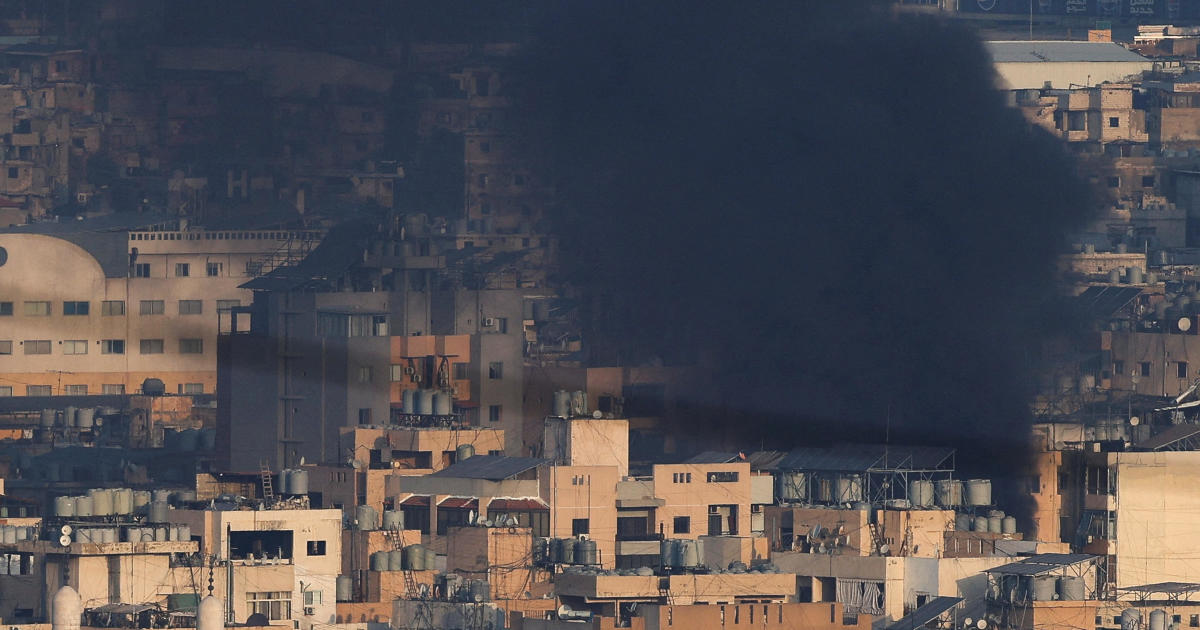Israel’s military operations in Lebanon have resulted in a significant humanitarian crisis, sparking international concern and prompting the United States to issue a warning. The escalating conflict, marked by intense airstrikes and ground incursions targeting Hezbollah infrastructure, has caused widespread destruction and a sharply rising civilian death toll. The Israeli government maintains its actions are necessary to neutralize Hezbollah’s capabilities and ensure the safety of its citizens, but the scale and impact of the operations have raised serious questions regarding proportionality and the protection of civilians. This situation highlights the complex dynamics of the conflict and the difficult challenges in balancing security concerns with the humanitarian imperative.
The Escalation of the Conflict in Lebanon
The Israeli Defense Forces (IDF) have launched a series of significant military operations in Lebanon, primarily targeting Hezbollah, the Iran-backed group. These operations began with intensive airstrikes targeting Hezbollah’s leadership and infrastructure. Initially focused on strikes against leadership and weapons caches, the IDF later expanded its operations to include ground incursions into southern Lebanon. The claimed aim is to dismantle Hezbollah’s military capabilities, specifically preventing rocket and drone attacks on Israel.
Airstrikes and Civilian Casualties
The airstrikes have caused significant damage to civilian infrastructure in Beirut and its suburbs, including densely populated areas. Reports from Lebanese officials indicate a staggering number of civilian casualties, exceeding 2,000 deaths and thousands more wounded. This high civilian death toll has drawn international condemnation and raised serious concerns about the proportionality of the IDF’s actions. The use of precision-guided munitions and targeting methodologies in the face of this level of civilian death is called into question, particularly given repeated use in populated urban centers such as Beirut and Dahiyeh.
Ground Operations and Hezbollah Infrastructure
Following the airstrikes, the IDF launched ground operations in southern Lebanon. These ground operations focused on destroying alleged Hezbollah tunnels, weapons storage sites, and command centers. The IDF has publicized its findings to journalists, showcasing extensive tunnel networks used to move fighters and weapons. These displays are presented by Israel as justification for the ground incursion, illustrating a necessary step in disabling Hezbollah’s capabilities. However, critics argue the scale of the operation is excessive and has led to unnecessary damage in the region. The extent of the collateral damage associated with the operations and targeting methodologies utilized remains an ongoing point of debate.
The International Response and US Concerns
The increasing number of civilian casualties in Lebanon has prompted strong international concern. The United States, a major ally of Israel, has expressed deep worries about the scale and conduct of the IDF operations. The Biden administration conveyed its concerns directly to Israeli officials, explicitly stating opposition to the current campaign and suggesting that a change is needed.
US Warnings and Potential Sanctions
The US warning wasn’t just a verbal expression of concern. It came in the form of a letter that explicitly linked continued operations of this scale to the level of US military and financial support Israel will receive going forward. The letter highlighted the necessity of increased humanitarian aid delivery into the Gaza strip, suggesting that failure to provide adequate assistance to the displaced population would have significant ramifications for future US-Israel relationships. The threat of withholding weapons and military funding underscores the gravity of the situation and the potential impact on US foreign policy strategies in the region.
Humanitarian Crisis and Refugee Flow
The conflict has created a dire humanitarian crisis in Lebanon, with hundreds of thousands of people forced to flee their homes. This massive displacement places an incredible strain on existing resources, exacerbating an already fragile situation and placing pressure on neighboring nations that are tasked with assisting and relocating the influx of people seeking safety and assistance. This humanitarian crisis directly influences not only Lebanon but also extends regionally, challenging both economic stability and regional diplomatic strategies.
Israel’s Justifications and Strategic Goals
Israel maintains that its military actions in Lebanon are necessary to protect its citizens and neutralize the threat posed by Hezbollah. The stated objective of the IDF is to create a buffer zone that prevents cross-border attacks while allowing the displaced Israelis to return to their homes safely. Furthermore, Israeli officials continue to reiterate the notion that their actions are strictly focused on targets believed to be directly tied to the continued threats from Hezbollah activity.
Limited Operations and Targeted Approach
The Israeli government emphasizes that the operations are “limited, localized, and targeted,” aiming solely at Hezbollah infrastructure and avoiding civilian harm. However, the high civilian death toll undermines this assertion, questioning both the operational approach as well as raising the issue of effective civilian protection during the IDF operations.
Counter-Hezbollah Measures
The operations are directly in response to the barrage of rocket attacks from Hezbollah toward Israeli citizens and territories. This has necessitated actions, in Israel’s view, to degrade and prevent continued escalation, effectively preempting attacks as opposed to reacting in the face of direct threat and imminent attack on civilian areas.
Long-term Strategy and Regional Stability
Israel’s long-term strategy appears to encompass securing its border region, neutralizing Hezbollah’s military capacity, and ultimately ensuring the long-term stability in the area. However, these long-term strategies risk further destabilizing the region due to escalation in violence and creation of a humanitarian crisis. Regional tensions remain highly volatile and further escalation from the IDF operations in southern Lebanon remain a possibility.
Take Away Points:
- The conflict in Lebanon has caused a major humanitarian crisis, with a substantial number of civilian casualties.
- The US has expressed serious concerns about the conflict’s scale and impact. This concern has direct implication regarding US financial and material support for future Israeli military operations.
- Israel argues its actions are necessary to neutralize Hezbollah’s threat and protect its citizens, but the high civilian casualty toll remains a contentious point.
- The long-term consequences of the conflict and its regional impact on stability and security require continued monitoring and attention.




